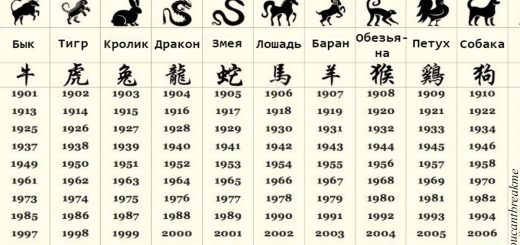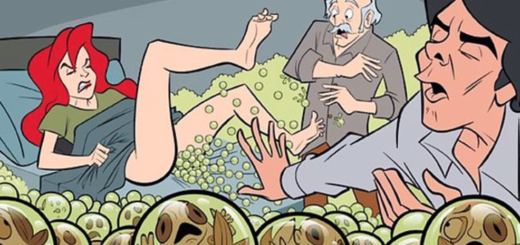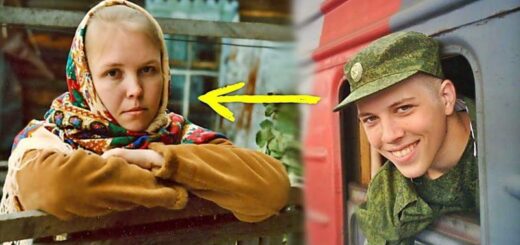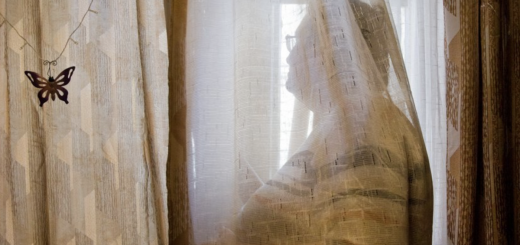Ngozi didn’t know where she was walking to that night. She just kept moving, holding her bag close to her chest. The streetlights were on, but the road felt dark. Her legs were shaking, and her eyes were wet. She could still hear Chaik’s voice in her ears. «You are a burden. I am freeing myself.»
She walked past shops, past sleeping dogs, past women closing their stalls. No one looked at her twice. No one knew that the woman passing them had just lost her home, her husband, and her peace. Her friend Amaka lived a few streets away. She was the only person Ngozi could think of.
They had known each other since university, and even though life had taken them in different directions, Amaka’s door was always open. Ngozi knocked gently. The time was almost 10 p.m. Amaka opened the door in her wrapper, shocked. «Ngozi, what happened to you? Why are you crying? Did someone die?»
Ngozi couldn’t speak. She just burst into tears again and fell into her friend’s arms. «Come inside, come inside,» Amaka said, pulling her into the small flat. She led her to a chair and closed the door. «Talk to me, please. What happened?»
«He threw me out,» Ngozi whispered.
«Chaik!»
Ngozi nodded slowly, wiping her eyes with the back of her hand. «He said I’m a curse. He said I’m the reason we don’t have children.»
Amaka hissed and sat beside her. «That man has no fear of God. After all these years? He didn’t even check himself? Ngozi, you have suffered.»
Ngozi rested her head on Amaka’s shoulder. «I don’t even know where to start. I left with just this bag. All my things are still in that house.»
Amaka touched her arm gently. «Don’t worry. You will sleep here tonight. You can stay as long as you need. I don’t have much, but this house is your house now.»
Ngozi closed her eyes and let out a long sigh. «Thank you, Amaka.» The room was silent for a few seconds. Then Amaka stood up. «Come, let me boil water. You’ll take a hot bath and eat something. Tomorrow, we’ll talk about what’s next.»
Ngozi sat there as Amaka walked away, her eyes staring at the floor. Her heart felt like it had cracked into many pieces. That night, she couldn’t sleep. Even though the bed was soft and the room was quiet, her mind kept going back to the moment Chaik told her to leave. She remembered how he turned his face away, how he looked at her like a stranger. By morning, her pillow was soaked with tears.
Days passed. Ngozi stayed in Amaka’s house, trying to hide her sadness. But she couldn’t eat much. She barely spoke. She would sit near the window, staring outside as if waiting for something to change. Amaka tried everything to cheer her up.
One morning, she said, «Ngozi, come with me to the market. Let’s walk around, breathe some fresh air.»
But Ngozi shook her head. «I don’t want people to see me. What if someone asks about Chaik? What will I say?»
«You’ll say the truth,» Amaka replied. «That he is a fool who threw away a diamond because he wanted a stone.»
Ngozi gave a small smile, but it didn’t last. Later that week, Amaka brought up something important. «Ngozi, have you ever gone for a proper medical checkup?»
Ngozi looked at her, confused. «What kind of checkup?»
«A fertility test. Have you ever tested yourself to be sure the problem wasn’t from you?»
Ngozi shook her head slowly. «Chaik said it was me. He never agreed to go for tests himself. He said he was fine.»
Amaka frowned. «So you just believed him?»
«I didn’t have a choice,» Ngozi said, her voice weak. «He wouldn’t listen. And his mother, his mother called me names. They all blamed me.»
Amaka stood up. «No, this has to stop. We’re going to the hospital tomorrow. Let them run all the tests. I need you to hear the truth from a doctor, not from that proud husband of yours.»
Ngozi didn’t argue. She was tired of guessing. Maybe, just maybe, she needed answers. The next day, they went to Life Hope Medical Center, a quiet private hospital where Amaka knew one of the doctors. Dr. Uche, a soft-spoken man in his forties, welcomed them into his office. «How can I help you, Madam Ngozi?» he asked gently.
Ngozi looked down. Amaka answered for her. «She was married for seven years. No child. Her husband divorced her because he said she was barren. But she has never done any tests. We want a full checkup.»
Dr. Uche nodded slowly. «You did the right thing by coming here. We’ll run some tests. Then we’ll talk.»
They spent the next few hours doing blood work, scans, and hormone tests. Ngozi felt nervous the whole time. What if Chaik had been right? What if she really was the problem? Two days later, the results were ready. Ngozi sat in front of the doctor, her hands sweating.
Dr. Uche adjusted his glasses and smiled. «Madam Ngozi, everything looks good. Your reproductive system is healthy. You’re ovulating well. Your hormone levels are normal. There is absolutely nothing wrong with you.»
Ngozi blinked. «Nothing?»
«Nothing,» the doctor repeated. «If there was no pregnancy for seven years, I advise you to ask your ex-husband to check himself. From what I see, you are completely fine.»
Ngozi covered her mouth as tears filled her eyes. «I… I don’t know what to say.»
Amaka jumped from her seat. «I knew it! I knew it! That man lied to you. Ngozi, he blamed you just to cover his own shame.»
Ngozi felt her whole world spin. «So all this time, I wasn’t the problem?»
Dr. Uche smiled kindly. «You were never the problem. And when you do find the right man, I believe you’ll have your own children. Don’t let what happened to you steal your peace.»
They thanked the doctor and left. Outside the hospital, Ngozi sat on a bench, her body shaking from the truth she had just heard. «All these years,» she whispered. «I begged God. I cried every night. I hated myself. And I wasn’t the one.»
Amaka sat beside her and held her hand. «Chaik will pay for what he did to you. I swear, Ngozi, one day he will look at you and wish he never let you go.»
Ngozi looked up at the sky. «Maybe this is the beginning of my healing.»
The next few weeks were different. Ngozi started helping Amaka with her tailoring business. She wasn’t smiling fully yet, but she was no longer lost. She began waking up early again, eating small meals, and even laughing sometimes. One evening, she told Amaka, «I want to start something. Maybe a small food business. I’ve always loved cooking.»
Amaka smiled wide. «Yes, that’s the spirit. I’ll help you. Let’s make it happen.»
They used Amaka’s small veranda to start a food stand. Every morning, Ngozi would cook rice, beans, moi moi, and soup. By 7 a.m., workers from nearby offices were lining up to buy. People began to know her again, not as the woman Chaik divorced, but as the woman who made the best Jollof in the area.
One afternoon, a customer smiled at her and said, «Madam, you look different. There’s a glow on your face.»
Ngozi smiled softly. «Maybe I’m finally free.»
But even with the small happiness, there were nights when the pain returned. One night, as she was folding aprons, she turned to Amaka. «Do you think he ever loved me?»
Amaka looked at her and said slowly, «I think he loved himself more. That’s the only thing I’m sure of.»
Ngozi nodded. «I just wish I didn’t waste so many years.»
«You didn’t waste them,» Amaka said. «You grew. You became stronger. And one day, God will give you more than you lost.»
Ngozi didn’t reply, but deep inside, something was changing. A small fire had started. A quiet strength. One Sunday afternoon, Amaka came home from church with news. «Ngozi, guess what?»
Ngozi looked up from her pot of soup. «What happened?»
«I saw Chaik’s cousin today. He told me Chaik is preparing to marry someone new. A flashy girl from Lagos.»
Ngozi’s heart paused for a moment. «Oh,» she said quietly.
«He’s even inviting some of your old friends to the wedding,» Amaka added. «He wants people to come and see what a real wife looks like.»
Ngozi looked away. «He hasn’t changed at all.»
Amaka came closer. «You know he might even send you an invite, just to mock you.»
Ngozi didn’t say anything. She stirred her soup slowly. Then she whispered, «Let him do whatever he wants. I know who I am now.» But that night, as she lay on her bed, her hand rested on her belly. She stared at the ceiling for a long time, remembering what the doctor said. «You’re healthy.» She placed her other hand over her chest. «God, if you ever saw my tears, please show the world that I was never the problem.»
And she closed her eyes, not with pain, but with a small smile of peace.
Ngozi stood in front of her food stand one morning, wiping the edge of a table with a cloth. The street was already buzzing with life. Children were rushing to school, keke drivers were honking, and women were calling out prices from their stalls. She was wearing a simple gown with a scarf tied around her head.
The smell of her Jollof rice filled the air, and a small line was already forming. She smiled weakly at each customer, dishing rice and stew into takeaway plates. But inside her heart, there was a quiet war. One part of her was moving on, but another part still remembered the pain, still remembered Chaik’s voice, still remembered how she was called barren, useless, and thrown out like trash.
«Madam, two plates, please.» A man’s voice broke her thoughts.
She turned. The man standing there was tall, with kind eyes and a calm face. He wore a white shirt tucked into neat brown trousers, and he carried a small black laptop bag. He smiled gently, pointing to the rice pot. «Your Jollof smells too good to pass,» he said.
Ngozi forced a small smile. «Thank you. Spicy or normal?»
«Spicy,» the man replied. «Very spicy. I like my food to fight back.»
That made Ngozi chuckle a little. She packed the two plates and handed them over. «How much?» he asked.
«Two thousand,» she replied.
He handed her a clean note, took the food, and looked at her for a second. «You don’t talk much,» he said.
Ngozi shrugged. «I just like to focus on the food.»
«That’s fair,» he smiled. «My name is Emeka, by the way. I work at the firm down the road. I’ll be coming back often. Your rice has already won my heart.»
Ngozi gave a polite nod. «Thank you, sir.»
As he walked away, she didn’t think much of it. Just another customer. But Emeka came back the next day. And the day after that. And the next. Sometimes he ordered two plates, sometimes just one. But each time he came, he made a small joke or shared a short story. He never stayed too long, never forced a long conversation. But Ngozi noticed he always made her smile.
























































